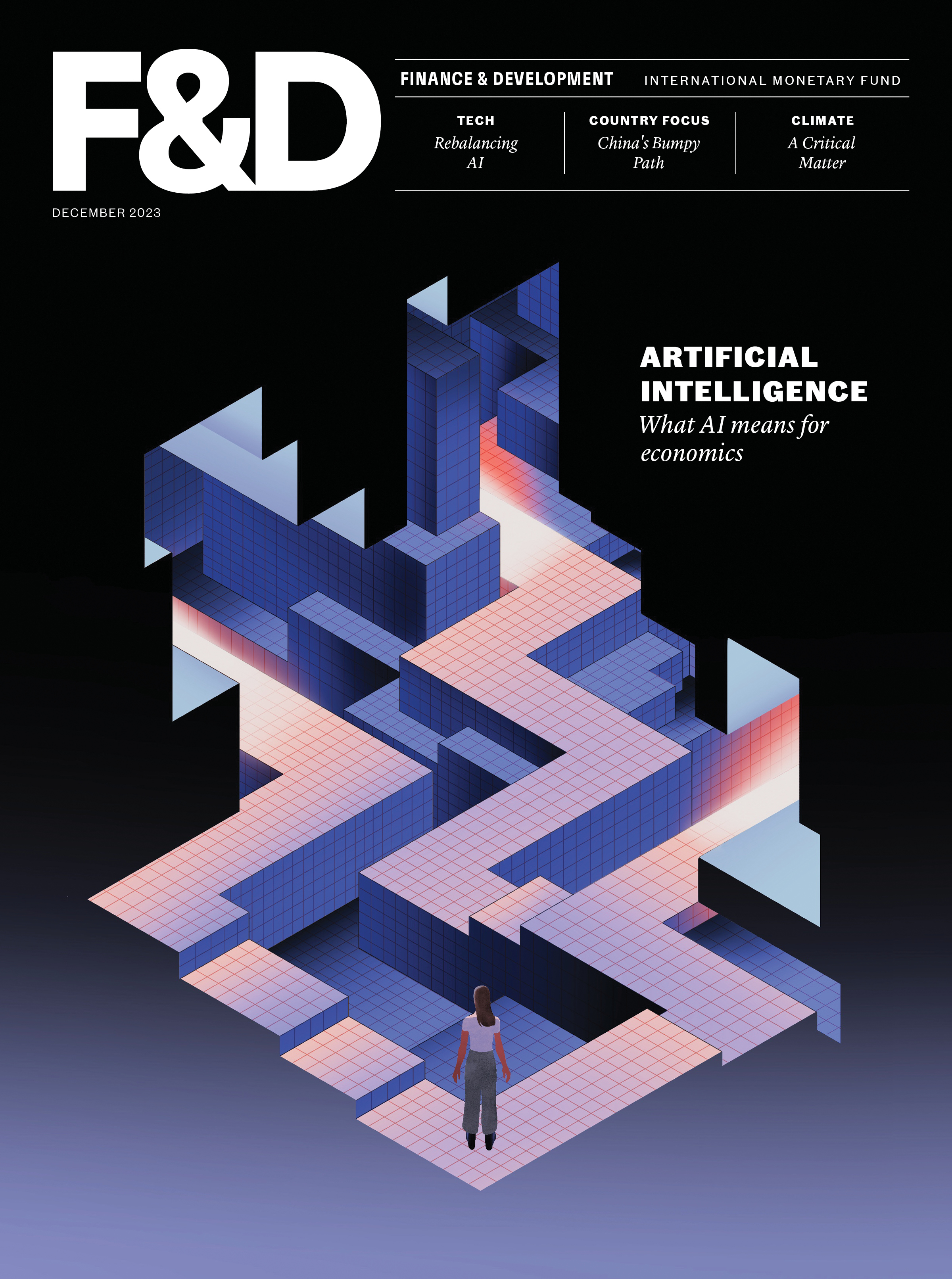Full disclosure: This issue of Finance & Development was produced entirely with human intelligence. But someday soon at least parts of this magazine may be assisted by artificial intelligence—a topic that has dominated global discourse since ChatGPT's introduction one year ago.
Generative AI has introduced tantalizing new possibilities in both the public and private spheres. Think how these “machines of the mind” can improve health care diagnoses, close education gaps, tackle food insecurity with more efficient farming, drive planetary exploration—not to mention eliminate the drudgery of work.
Yet the initial excitement surrounding AI has given way to genuine and growing concerns—including about the spread of misinformation that disrupts democracy and destabilizes economies, threats to jobs across the skills spectrum, a widening of the gulf separating the haves and have-nots, and the proliferation of biases, both human and computational.
This issue is an early attempt to understand AI’s implications for growth, jobs, inequality, and finance. We bring together leading thinkers to explore how to prepare for an AI world.
In our lead article, Stanford’s Erik Brynjolfsson and Gabriel Unger sketch two wildly different potential outcomes (beneficial or detrimental) for AI’s effect on each of three important facets of the economy—productivity growth, income inequality, and industrial concentration (the collective market share of the largest firms in a sector). The future that emerges will be a consequence of many things, including technological and policy decisions made today, they note.
For MIT’s Daron Acemoglu and Simon Johnson, AI’s ultimate impact depends on how it affects workers. Innovation always leads to higher productivity, but not always to shared prosperity, depending on whether machines complement or replace humans. The economists outline policies, such as giving labor a voice, that can redirect efforts away from pure automation toward a more “human-complementary” path that creates new and higher-quality tasks.
AI progresses by leaps and bounds. Given its inherent unpredictability, Anton Korinek, of the University of Virginia, recommends scenario planning. He lays out how different technological paths, depending on whether—and how soon—AI exceeds human intelligence, would lead to vastly different outcomes for the economy and workers. Policymakers should prepare reforms for these multiple scenarios and revise as the future unfolds, he notes.
This leads us to AI governance. Ian Bremmer, president of Eurasia Group, and Mustafa Suleyman, CEO of Inflection AI, point to regulatory challenges amid a race for AI supremacy among governments. They warn that governing AI will be among the international community’s most difficult challenges in coming decades and outline principles for AI policymaking.
The IMF’s Gita Gopinath urges balancing innovation and regulation in developing a unique set of policies for AI. Because AI operates across borders, we urgently need global cooperation to maximize the enormous opportunities of this technology while minimizing the obvious harms to society, she writes.
In other thought-provoking articles, Daniel Björkegren and Joshua Blumenstock show how Kenya, Sierra Leone, and Togo adapted AI to benefit the poor. Nandan Nilekani describes how India is on a cusp of an AI revolution to address pressing economic and social challenges. And we profile Harvard labor economist Lawrence F. Katz, whose defining work on inequality illuminates the discussion on AI.
AI can develop in very different directions, underscoring the role of society in actively and collectively determining its future. What is clear is that the technology must be guided as tools that can enhance, rather than undermine, human potential and ingenuity. Ultimately, it’s about what AI can do to help people.
Thanks, as ever, for reading.
Subscribe to weekly updates from Finance & Development here, or receive the print magazine for free each quarter here







